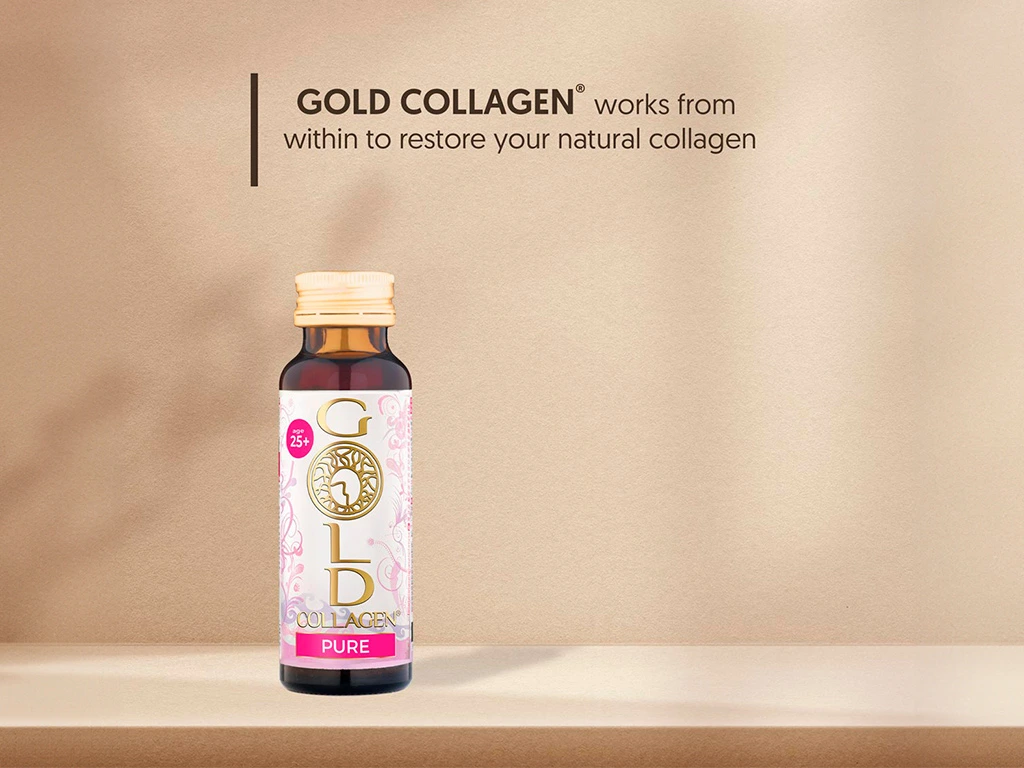Collagen and summer – Dr. Sara Sibilla
-
 GOLD COLLAGEN
GOLD COLLAGEN - Nutrition And Beauty
- May 19, 2017
Hi there!
My name is Dr. Sara Sibilla, Senior Clinical & Scientific Research Manager at Minerva Research Labs. I joined Minerva back in 2013 after having spent more than ten years as a “hands-on” scientist investigating the mechanisms of cell development and ageing in the field of neuroscience. I have always had a keen interest in cellular ageing and in the connection between basic science and possible clinical applications of research findings. At MINERVA Research Labs Ltd I have the opportunity to follow those interests when working on new product formulations and developments. I am currently also involved in coordinating international scientific projects and clinical trials to measure the efficacy of GOLD COLLAGEN®‘s range of products.
Ageing is a very complex process in which many different mechanisms are involved. Skin ageing in particular is characterized by a gradual structural deterioration and functional alterations due to intrinsic genetic factors. These may be accelerated by extrinsic ageing factors such as chronic sun exposure (photo-ageing) or by lifestyle factors such as smoking, alcohol, stress, and lack of sleep, which all lead ultimately to the formation of phenotypic changes such as increased skin frailty, fine lines and wrinkles.
The skin is the biggest organ in the human body and it is a vital organ, although we often tend to forget that as it is always visible and we often perceive organs to be inside the body. The skin acts as a protective barrier against the external environment, for example it protects us against the sun’s radiation, the second cause of ageing after the age itself, as well as from pathogens and pollutants, and for this reason the skin is subject to ageing and degenerative processes.
Collagen and elastin are long-life proteins predisposed to intrinsic molecular ageing. As a consequence, they accumulate damage over time, which decreases their ability to function correctly. Photo-aged skin is characterized by the degradation and the alteration of collagen and elastin fibres, by the decrease of hyaluronic acid, leading to a dehydrated and wrinkled skin, and by an accumulation of oxidative damage in cells and tissues. Oxidative damage is caused by a disturbance in the balance between the production of reactive oxygen species (ROS) and the natural antioxidant defences. In the skin, free radical damage can cause deterioration of the stratum corneum (the barrier of the epidermis) and of the supportive connective tissue, resulting in decreased elasticity and resilience. Sun damage, for example, can cause both skin cancer and photo ageing and affects the skin through wrinkling, scaling, dryness, and mottled pigmentation. In addition, the activation of matrix metalloproteinases (MMPs) can occur; these enzymes exert a proteolytic activity that results in the degradation of collagen and elastin fibers.
Nowadays, we continuously gain new insights into the effects of orally administered biologically active compounds, such as antioxidants and collagen peptides, on skin function, and this has led to the development of several nutritional supplements to benefit the human skin. Some dietary components with antioxidant properties could have an indirect effect on the skin via secondary messengers, for example, or during digestion they can pass down the gastrointestinal tract, cross the intestinal barrier, and then (through the blood stream) reach the different tissues of the body, among which skin, in an active form. The blood can continuously replenish the skin with these physiologically active compounds, which are then distributed to all skin compartments.
Topical application of products containing collagen does not significantly improve the skin texture, as the collagen molecules cannot penetrate the epidermis, due to their high molecular weight (130–300 kDa). The oral intake of bioactive collagen peptides, however, permits a systemic absorption and distribution of these peptides in the different tissues, due to their low molecular weight.
Although it is not possible to prevent natural intrinsic ageing, we can all improve our lifestyle and increase our defences against environmental factors and when it comes to sun exposure and photo-ageing, the most important thing is to apply sunscreen with a high SPF several times a day, not to overexpose yourself to the sun and to always use protective clothes and sunglasses.
Supplementation with collagen peptides and antioxidants can nourish and protect the skin, both activating the fibroblasts, the cells present in the skin, in order to produce new collagen, elastin and hyaluronic acid, and fighting free radical damage generated by UV radiation. Therefore, it makes sense to take a nutraceutical containing both collagen peptides and antioxidants ahead of summer. This can help protect the skin against sun damage and photo-ageing, which could cause damage to collagen and elastin fibres, lead to a decrease in collagen and elastin levels and incur dehydration due to the decrease in hyaluronic acid. The clinical trial we carried out in collaboration with an independent clinic in Italy using GOLD COLLAGEN® FORTE during the summer months revealed how the use of this collagen based supplement significantly helps improve skin elasticity, while in the placebo group we recorded a reduction in the elasticity due to the deterioration of skin condition because of sun damage.
That said, a supplementation based on collagen and antioxidants is not important only during summer. It would be ideal to take collagen peptides all year round to consistently nourish the skin and make it stronger and healthier. In fact, collagen supplementation activates skin cells, the fibroblasts, that, once activated, can produce new collagen, elastin and hyaluronic acid, leading to more cells being active and supporting the skin’s health
GOLD COLLAGEN® products contain antioxidants too. This unique range of products not only boosts collagen production to support skin structure, but gives a protection from free radicals, that can lead to collagen degradation and damage of the collagen and elastin fibre network in the body.
Dr.Sara Sibilla (PhD)
Senior Clinical & Scientific Research Manager












